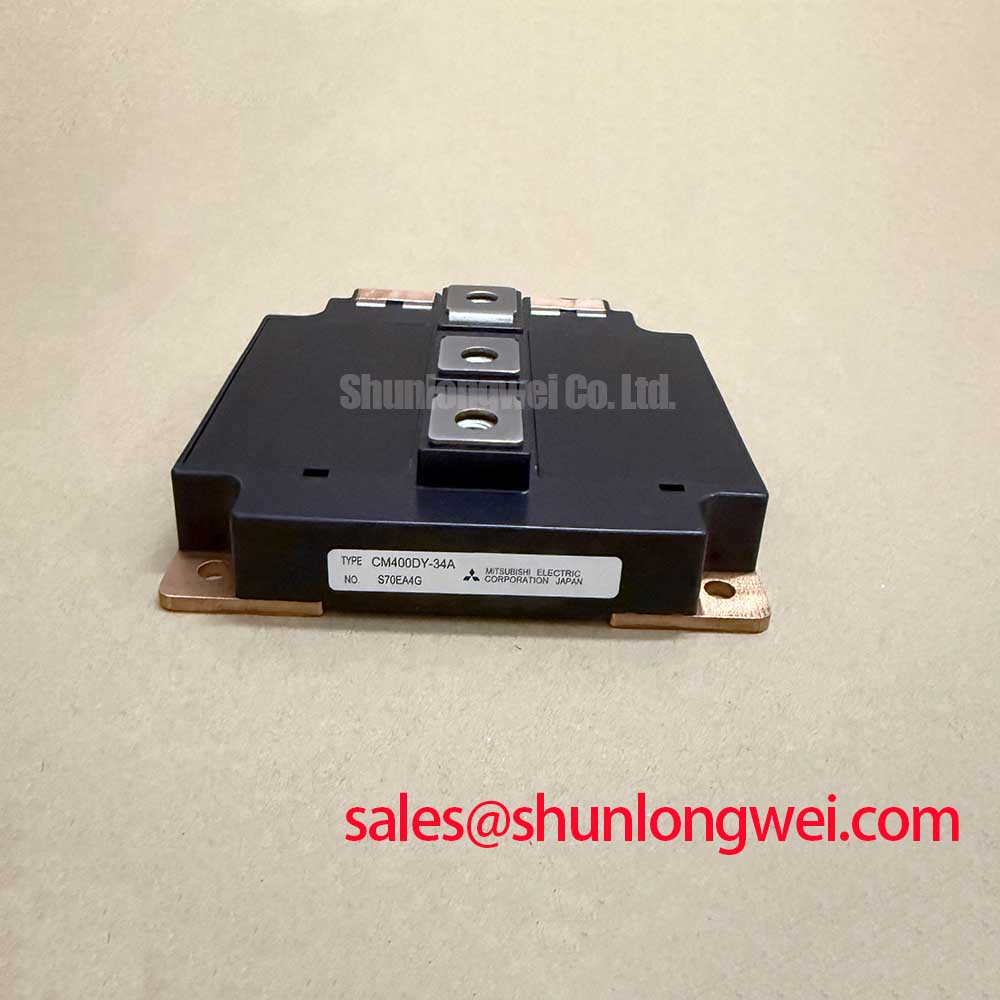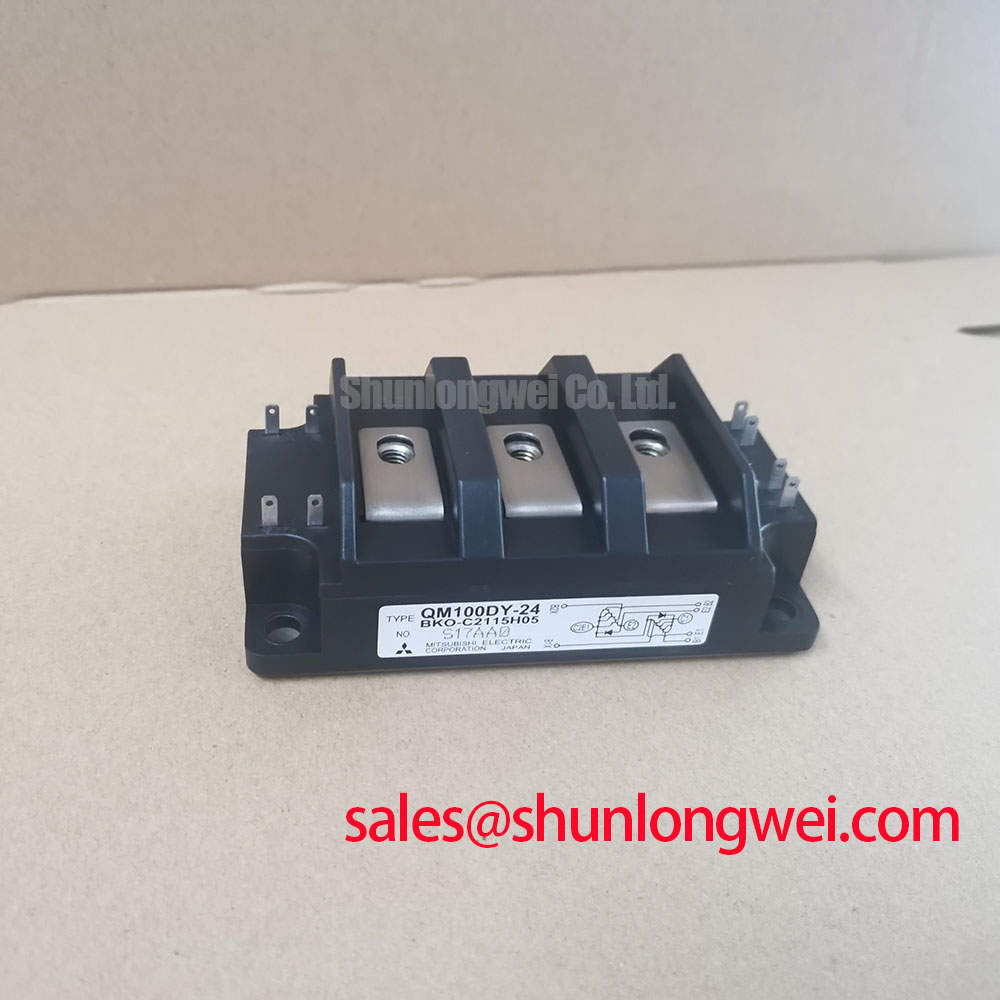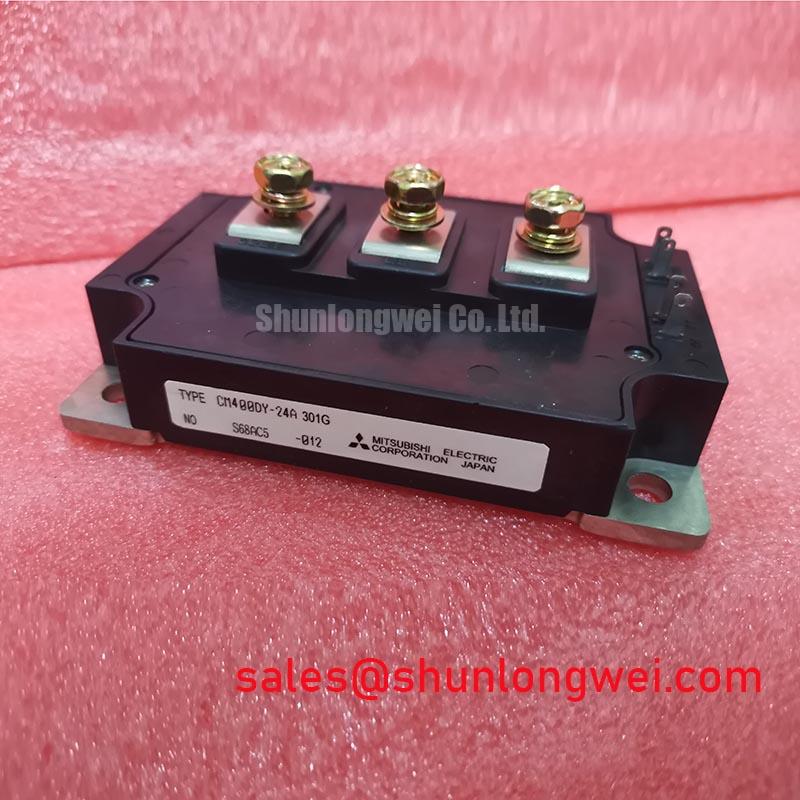Content last revised on January 17, 2026
Mitsubishi CM1000HA-24H | The Bedrock of High-Power Industrial Inverters
The Mitsubishi CM1000HA-24H is not merely a component; it is a foundational building block for high-power, high-reliability power conversion systems. As a 1200V, 1000A single IGBT module, it is engineered to handle the immense electrical and thermal stresses inherent in megawatt-scale applications. For engineers designing the next generation of industrial motor drives, renewable energy inverters, or heavy-duty power supplies, the CM1000HA-24H offers a proven combination of raw power handling, thermal efficiency, and ruggedness that is essential for long-term operational success.
Key Parameters at a Glance
This table provides a snapshot of the critical performance characteristics that define the CM1000HA-24H's capabilities. These figures are central to any power system design and thermal modeling.
| Parameter | Value |
|---|---|
| Collector-Emitter Voltage (V_CES) | 1200 V |
| Continuous Collector Current (I_C) @ Tc=80°C | 1000 A |
| Collector-Emitter Saturation Voltage (V_CE(sat)) @ I_C=1000A, V_GE=15V | 2.7 V (Typ.) |
| Total Power Dissipation (P_C) @ Tc=25°C | 6940 W |
| Maximum Junction Temperature (T_j(max)) | 150 °C |
| Thermal Resistance, Junction to Case (R_th(j-c)) | 0.018 °C/W |
Technical Deep Dive: Where Power Meets Reliability
Engineered for Thermal Stability
At 1000 amps, effective thermal management is non-negotiable. The CM1000HA-24H is built upon an architecture designed to minimize thermal impedance. Its exceptionally low junction-to-case thermal resistance (R_th(j-c)) of 0.018 °C/W is a testament to this design philosophy. This isn't just a number; it represents a direct and efficient pathway for heat to escape the IGBT chip, travel through the isolated baseplate, and transfer to the heatsink. For system designers, this translates into lower operating junction temperatures, a significantly expanded SOA (Safe Operating Area), and crucially, enhanced power cycling capability, which is vital in applications with fluctuating loads like motor drives.
Optimizing the Conduction Loss Equation
In high-current systems, conduction losses (P_cond = V_CE(sat) * I_C) are a dominant factor in overall system efficiency. The CM1000HA-24H utilizes an advanced trench-gate structure, likely one of Mitsubishi's proven CSTBT™ (Carrier Stored Trench-Gate Bipolar Transistor) technologies, to achieve a low V_CE(sat) under heavy load. This directly reduces the heat generated during the on-state, lessening the burden on the cooling system and improving the total cost of ownership (TCO) by minimizing wasted energy. Understanding this balance is key for engineers, as explained in our guide to decoding IGBT datasheets.
Application Scenarios & Value Proposition
The robust specifications of the Mitsubishi CM1000HA-24H enable superior performance across a range of demanding industrial applications:
- High-Power Variable Frequency Drives (VFDs): In multi-megawatt VFDs for mining, marine propulsion, or large-scale manufacturing, the module's high current rating and thermal stability ensure precise and reliable motor control, reducing mechanical stress and improving energy efficiency.
- Renewable Energy Inverters: For large commercial and utility-scale solar or wind turbine inverters, the module's high reliability and low conduction losses are critical for maximizing energy harvest and ensuring grid stability over a 20+ year operational lifespan.
- Industrial Power Supplies & Welding: In applications like high-frequency induction heating and heavy-duty welding, the CM1000HA-24H's robust short-circuit withstand time and ability to handle pulsed currents make it a resilient choice for harsh electrical environments.
Frequently Asked Engineering Questions (FAQ)
Can the CM1000HA-24H be paralleled for multi-kiloampere applications?
Yes, paralleling is a common strategy for these modules. However, it requires careful engineering. Success hinges on ensuring symmetrical layout for balanced current sharing, using gate resistors with tight tolerances, and implementing a robust gate drive circuit capable of sourcing and sinking the high peak currents required. A Kelvin emitter connection is essential for mitigating the effects of stray inductance in the gate loop.
What are the critical gate drive considerations for a 1000A module like this?
Driving a high-current module like the CM1000HA-24H demands more than a standard driver. Key considerations include: a high peak gate current capability (typically >10A) for rapid switching, a negative gate voltage (e.g., -15V) during the off-state to prevent parasitic turn-on, and a low-inductance gate drive layout. For detailed strategies, review our 5 practical tips for robust gate drive design.
For detailed application notes, thermal modeling support, or to discuss how the CM1000HA-24H can anchor your next high-power design, please contact our technical team.

















